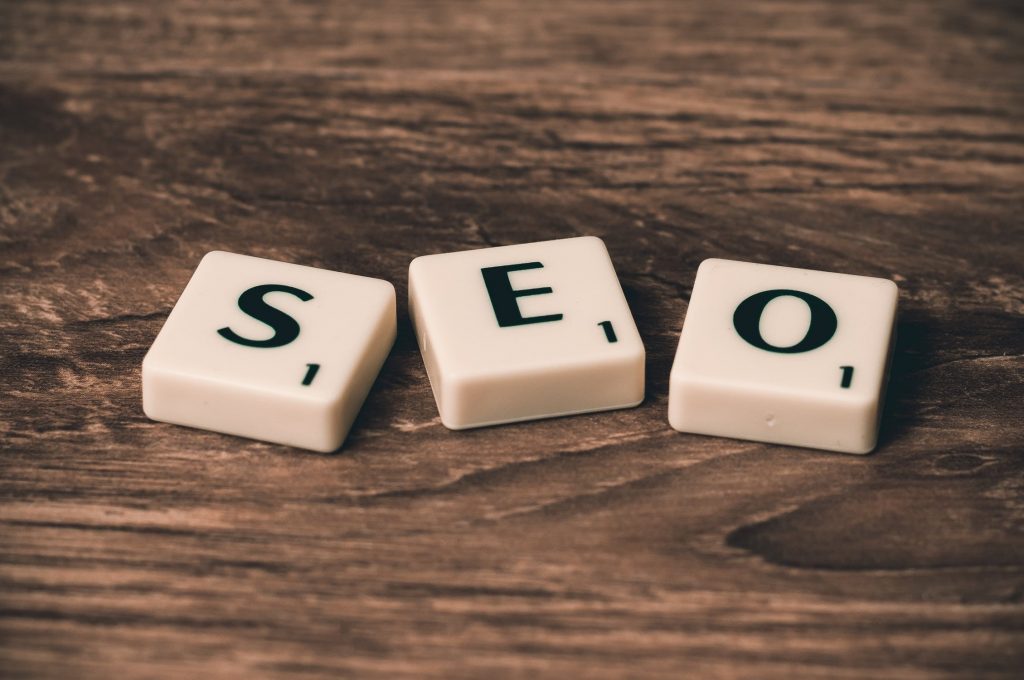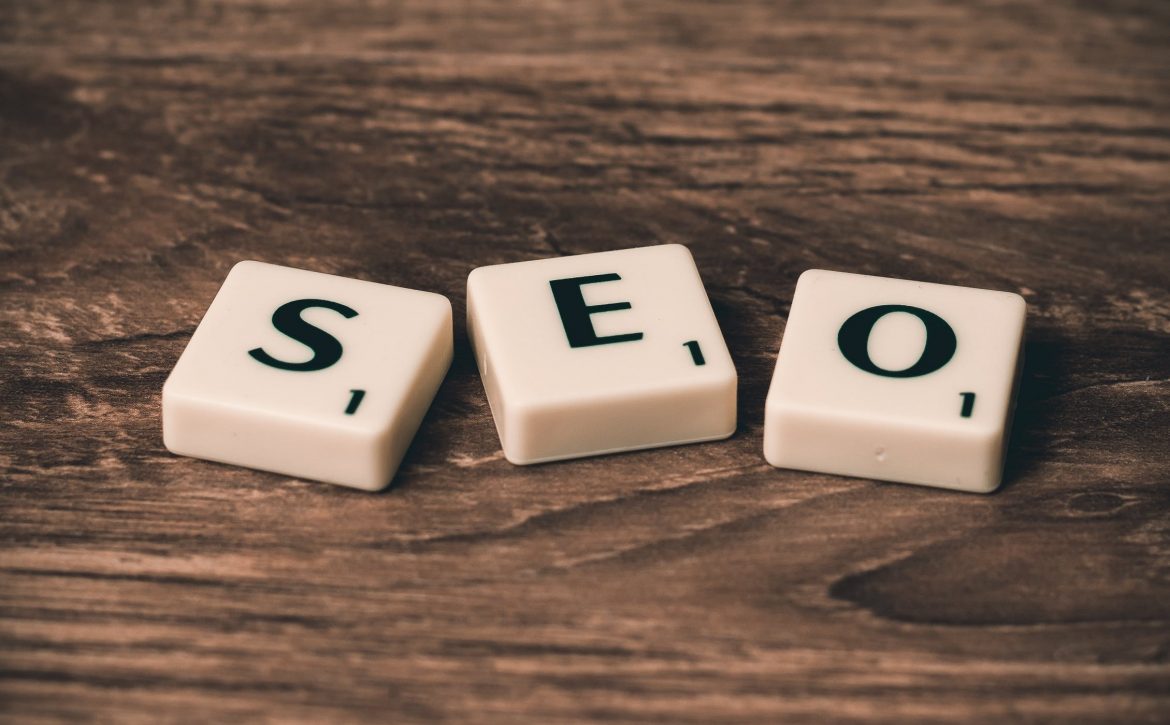What is SEO and how do you improve it?
What is SEO? (Search Engine Optimisation)
Over 90% of experiences on the internet start on a search engine. From these searches, a third of the time the top result on Google is clicked instantly. If you are not the top result for a search, you will miss out on a third of your potential traffic. Additionally, 75% of people never click to the second page of search results, again resulting in another huge potential loss of traffic.
What is the solution to this problem? A proper SEO strategy.
SEO is about getting your content to the people who are searching for it, whether they know it or not. It is a process that aims to increase both the quality and the quantity of your website’s traffic, which in turn leads to increased exposure and visitors. SEO does not revolve around paying to improve your ranking but is rather an organic way of driving traffic. Ultimately, SEO is about understanding what your potential visitors are searching for; whether it be the questions they are googling, the answers which would fulfil them, or the words and key phrases that are commonly used, everything of this nature feeds into your SEO.
Understanding your visitors in this way is one component of SEO. The second half is being able to use the way Google (and other search engines) operate to link your website with the most relevant searches. The process relies on industry-specific terms which many beginners may not understand, so before we get into the nitty-gritty of how to improve your SEO, it may be helpful to explain the process that underpins how search engines work. This will be useful to refer back to so you understand what stage of the process each tip will try to exploit.
How do Search Engines work?

Crawling and Indexing
Despite how it may appear, there is not some complete central registry of all websites in existence. Instead, Google uses algorithms and bots to scan pages to learn what is on them. When a new URL is discovered by Google, it visits and crawls the page. Google does this by looking at both text and non-text resources as well as the overall layout of the page. These are the most basic factors that will determine where it will appear in search results. If Google can easily understand and navigate your site, the more likely it is that it will appear higher in relevant searches. Through crawling the page, Google learns more and more about the site. This information is then sent to a huge database known as the Google Index. It is from this index that relevant searches will be linked up with the most relevant pages.
Serving and Ranking
The factors that Google learnt during its crawl of your page will now be added to other influences which will determine what searches your page will appear for and how high on the list of results. What location, language, and device the user is using all influence a page’s ranking. These innate factors ensure the best user experience. It is of course beneficial when someone Googles “key-cutting” that the most local establishments offering that service are shown first.
For a more in-depth explanation of this process, below is a link to an explanation created by Google themselves.
https://developers.google.com/search/docs/beginner/how-search-works
But how can you improve your SEO ranking? Here are 10 useful and easy tips on how you can improve your SEO.
10 tips to improve your SEO

1. Don’t prioritise bots, prioritise users.
Let’s get this one out of the way; even though bots will influence your SEO, never try to artificially boost your ranking by creating a page that only bots would engage with. Ask yourself; “Would I be comfortable explaining what I have just done to a Google employee?”. These methods can deceive and aggravate visitors to your site and can be dedicated by bots. It can even result in your website being removed from search engines.
2. Optimise your website for Mobile Devices.
There can be an innate tendency of someone new to web designing and SEO to first make a desktop version of a website and the mobile version can sometimes be an afterthought. This can be disastrous. Over 60% of Google searches are now completed on mobile devices, a fact that Google now takes into consideration. If your website is not mobile compatible, it will automatically drive your ranking down. This is even before the negative user experiences also damage repeat visits to your website and further damage your ranking.
3. Focus your URLs.
Your URL (Uniform Resource Locator) or the web address is a resource that specifies the location of your website on the inner workings of a computer and how it is retrieved. Your URL should draw as many relevant visitors in as possible while also explaining what the page is about. It is a good idea to start your URL with the broadest way of explaining your field of focus. You can then become more specific in the later part of the URL that will also draw in more specific searches.
4. Get meta.
The meta description is the small introduction that appears under a website once it is pulled up by a search engine. It should provide a summary of the content of the page so the visitor can judge whether or not to click. The meta description should only be around 160 characters as the rest will be cut off by Google. Three rules of thumb that should always be applied to a meta description should be; keep it short, keep it unique and keep it descriptive.
5. Tend to your website; add fresh new content and remove any old or broken hyperlinks.
To improve and then maintain your SEO ranking, visitors need reasons to keep coming back to your website. If a website remains unchanged for years, why would anyone return? And if no one is returning, why would Google promote your website? To combat this, add as much up-to-date, high-quality content as possible. Starting a blog on your website is an excellent way to do this. This also positively affects dwell time (how long visitors stay on your page and website) and how often visitors bookmark your website, both of which will improve your SEO.
Using external hyperlinks is one simple way to improve your SEO but if these links break or become too outdated, these will begin to drive down your SEO. Not ensuring all links to external sources are still relevant and working properly can also make you look unprofessional, unreliable or careless to your visitors.

6. Use Keywords and use them well.
People put words into search engines so it is only logical that the sorts of words used on your website can affect your SEO. These keywords that your potential visitors will use need to be naturally embedded throughout the website; in headers, metadata, image captions and everywhere else possible. There can be too much of a good thing, however. As explained in the first tip of this piece, do not just spam keywords as this can again hurt your SEO ranking. Another important factor of this is ensuring that your title does not exceed 65 characters, as anything past this amount will be cut off from the search result.
7. Improve your loading times.
Not only will slow loading times directly affect your SEO, but it will also drive repeat visitors away. Slow loading times greatly increase abandonment rates. It is estimated that 40% of visitors will abandon a page if it takes longer than 3 seconds to load. A further whopping 80% of these deserters will never revisit the website because of this experience. This can devastate your traffic, so improving your page’s loading time and your server response time is always a worthwhile exercise.
8. Get to know the wider Google family.
There are separate services that Google offers. Although they may not be strictly necessary for your website, they can easily boost your SEO. By setting up a Google Business account, it allows you to create a well-placed space to showcase information on your business, clearly state your contact information and monitor user reviews. This is especially crucial if you are a small brick-and-mortar business as a Google Business account can seriously boost your local SEO.
Say there were two locksmiths near each other, both of which have websites but only one has Google Business. When someone uses a related search term, it is more likely that the one with the Google Business would appear first. Not only that, but the visitor will be able to clearly see pictures of the shop, opening hours, contact details and all the reviews. It is clear how and why this will positively affect your SEO ranking.
Additionally, Google Analytics allows for a much greater understanding of the SEO performance of your website. With Google Analytics, it is easy to see what search terms are resulting in the most traffic for your site, as well as being able to monitor what devices most of your organic traffic is coming from. This increased insight can allow you to make constant tweaks to your site in order to maximise your SEO.
9. Try and answer all of your visitors’ questions… ideally before they ask them.
This can be done in 2 main ways. A comprehensive FAQ (Frequently Asked Questions) section of your website has many benefits. Firstly, it creates a better visitor experience. If a visitor can avoid sending an email or ringing a helpline to answer their query, they are much more likely to repeat their visit. This also has positive influences on dwell time, a further positive influence on your SEO.
The other option is being an active member on sites such as Yahoo! Answers or Quora. These websites are filled with unanswered, or poorly answered questions from users and more are constantly added. Finding questions that are relevant to the niche of your website and answering them can prove very worthwhile. It is an opportunity to help someone showing an interest in an area similar to your site and also direct them to your site using links. Links are a vital part of a successful SEO strategy, as will be shown in my final tip.
10. Build backlinks.
The aforementioned Q&A sites are a perfect way to increase the number of backlinks or inbound links that lead to your website. The Google bots see backlinks as Google users seeing the linked website as credible, useful and of high quality. These are of course attributes that Google tries to promote in their search engine. There are many ways to increase the number of links that lead back to your site. This could include being mentioned in online interviews or sponsoring social media influencers. These would increase exposure to your website in a traditional sense but also optimise your SEO as the increase of links is greatly valued by the Google bots.
Do I need help from a SEO professional?

Throughout this blog, I hope I have shared some actionable tips on how you can easily improve your SEO. There is also however an industry of dedicated SEO experts who can manage bots and improve loading times so skillfully that your SEO should skyrocket.
But why bother paying someone to do this work?
Although there may be some changes you can make that will boost your ranking if you want long-term maximum optimisation of your SEO; an experienced, skilful expert is second to none. Secondly, it allows you to focus on the things you are a professional in. Whatever your website is about; whether it be running your business, writing your blog, or anything else, your time is most likely better spent focusing on this, rather than the nitty-gritty of SEO. Finally, having professionals working on your website will undoubtedly bring it up. These people see hundreds of professionally made websites during their work and can share their industry insights with you. Having someone like this constantly monitoring your website’s SEO can have a massive impact on your traffic and ultimately the success of your website.
Link to Leviated.co.uk homepage



